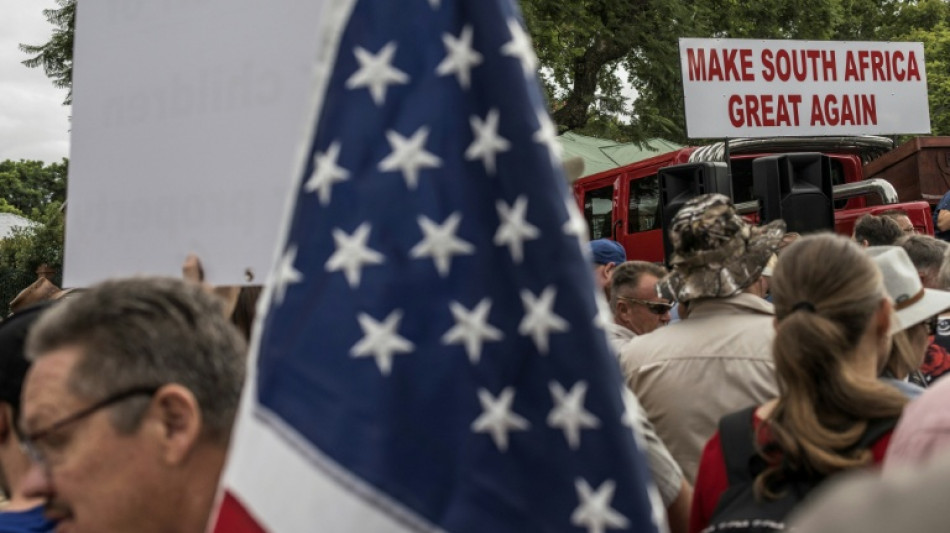
-
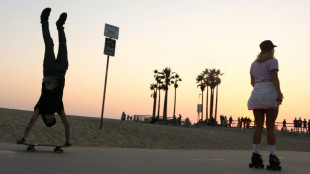 Universal Studios, Venice Beach to host LA 2028 events
Universal Studios, Venice Beach to host LA 2028 events
-
IOM chief urges world to step up aid for Haiti
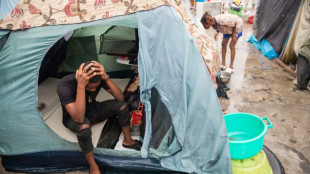
-
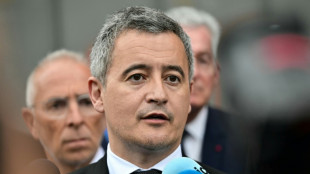 French prisons hit by mystery arson and gunfire attacks
French prisons hit by mystery arson and gunfire attacks
-
Alcaraz follows Ruud into Barcelona Open last 16

-
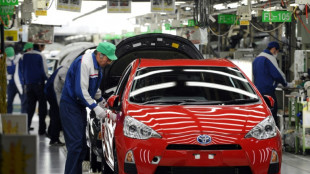 Stocks rise on bank earnings, auto tariff hopes
Stocks rise on bank earnings, auto tariff hopes
-
Trump showdown with courts in spotlight at migrant hearing
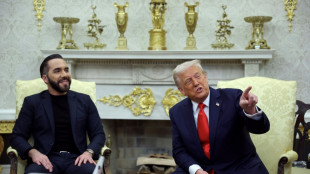
-
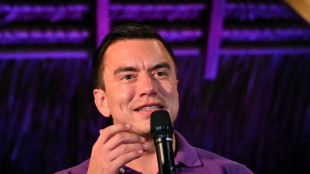 Ecuador electoral council rejects claims of fraud in presidential vote
Ecuador electoral council rejects claims of fraud in presidential vote
-
Russia jails four journalists who covered Navalny
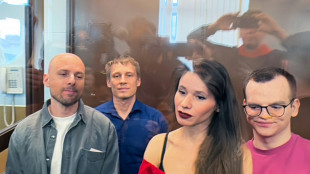
-
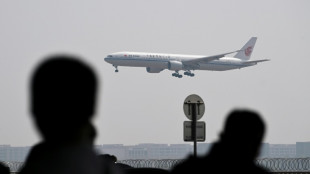 Trump says China 'reneged' on Boeing deal as tensions flare
Trump says China 'reneged' on Boeing deal as tensions flare
-
Trump eyes near 50 percent cut in State Dept budget: US media
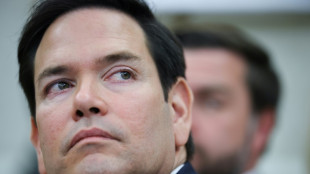
-
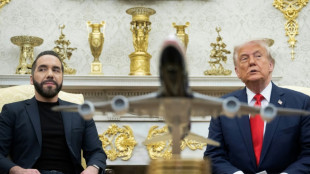 Trump says would 'love' to send US citizens to El Salvador jail
Trump says would 'love' to send US citizens to El Salvador jail
-
'Unprecedented' Europe raids net 200 arrests, drugs haul
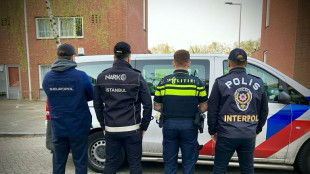
-
 Everyone thinks Real Madrid comeback 'nailed-on': Bellingham
Everyone thinks Real Madrid comeback 'nailed-on': Bellingham
-
NATO's Rutte says US-led Ukraine peace talks 'not easy'
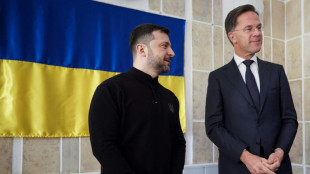
-
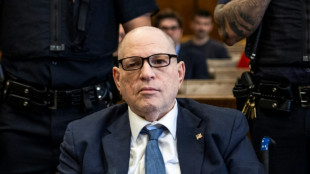 Harvey Weinstein New York retrial for sex crimes begins
Harvey Weinstein New York retrial for sex crimes begins
-
More than 10% of Afghans could lose healthcare by year-end: WHO
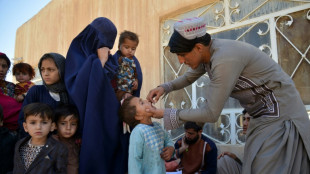
-
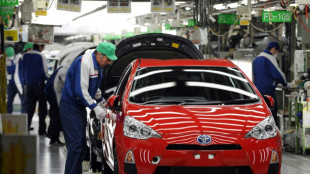 Stocks rise as auto shares surge on tariff break hopes
Stocks rise as auto shares surge on tariff break hopes
-
Facebook chief Zuckerberg testifying again in US antitrust trial
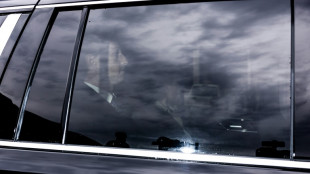
-
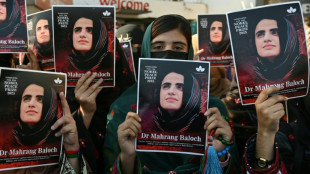 Pakistan court refuses to hear Baloch activist case: lawyers
Pakistan court refuses to hear Baloch activist case: lawyers
-
Inzaghi pushing Inter to end San Siro hoodoo with Bayern and reach Champions League semis

-
 Arsenal's Odegaard can prove point on Real Madrid return
Arsenal's Odegaard can prove point on Real Madrid return
-
China's Xi begins Malaysia visit in shadow of Trump tariffs
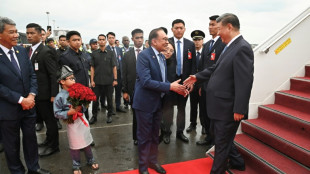
-
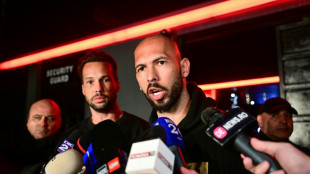 Andrew Tate accusers suing for 'six-figure' sum, UK court hears
Andrew Tate accusers suing for 'six-figure' sum, UK court hears
-
Macron to honour craftspeople who rebuilt Notre Dame

-
 Van der Poel E3 'spitter' facing fine
Van der Poel E3 'spitter' facing fine
-
Khamenei says Iran-US talks going well but may lead nowhere
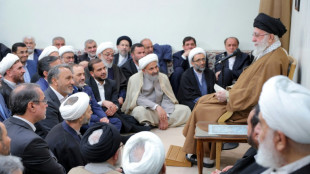
-
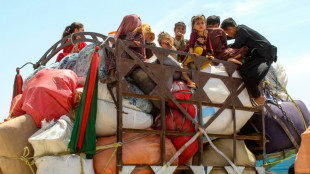 Nearly 60,000 Afghans return from Pakistan in two weeks: IOM
Nearly 60,000 Afghans return from Pakistan in two weeks: IOM
-
Auto shares surge on tariff reprieve hopes
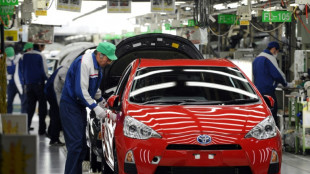
-
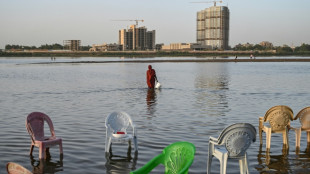 Sudan war drains life from once-thriving island in capital's heart
Sudan war drains life from once-thriving island in capital's heart
-
Trump trade war casts pall in China's southern export heartland

-
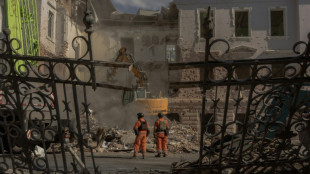 Ukraine's Sumy prepares to bury victims of 'bloody Sunday'
Ukraine's Sumy prepares to bury victims of 'bloody Sunday'
-
Iraq sandstorm closes airports, puts 3,700 people in hospital

-
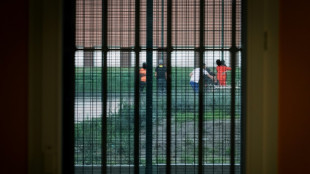 French prisons targeted with arson, gunfire: ministry
French prisons targeted with arson, gunfire: ministry
-
Pandemic treaty talks inch towards deal
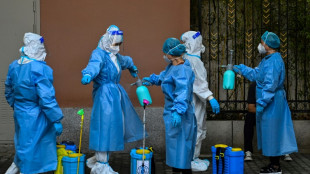
-
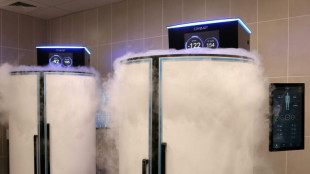 Employee dead, client critical after Paris cryotherapy session goes wrong
Employee dead, client critical after Paris cryotherapy session goes wrong
-
Howe will only return to Newcastle dugout when '100 percent' ready

-
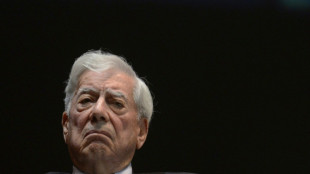 Journalist recalls night Mario Vargas Llosa punched Gabriel Garcia Marquez
Journalist recalls night Mario Vargas Llosa punched Gabriel Garcia Marquez
-
Sudan marks two years of war with no end in sight
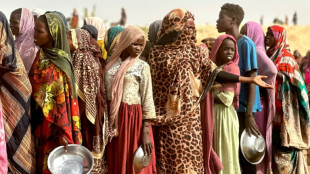
-
 Vance urges Europe not to be US 'vassal'
Vance urges Europe not to be US 'vassal'
-
China tells airlines to suspend Boeing jet deliveries: report
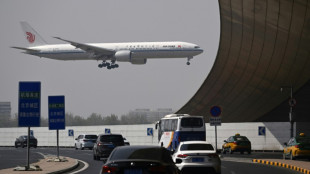
-
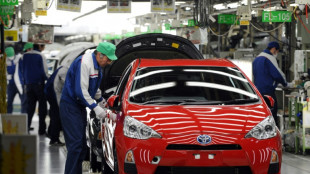 Stocks rise as stability returns, autos surge on exemption hope
Stocks rise as stability returns, autos surge on exemption hope
-
Harvard sees $2.2bn funding freeze after defying Trump
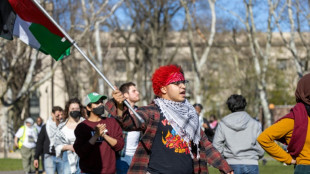
-
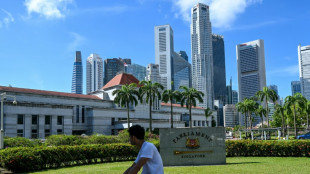 'Tough' Singapore election expected for non-Lee leader
'Tough' Singapore election expected for non-Lee leader
-
Japan orders Google to cease alleged antitrust violation
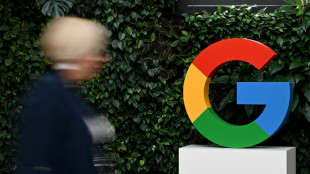
-
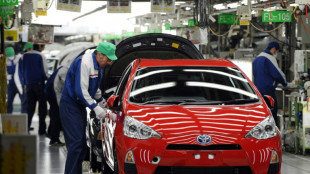 Stocks rise as stability returns, autos lifted by exemption hope
Stocks rise as stability returns, autos lifted by exemption hope
-
Malawi's debt crisis deepens as aid cuts hurt
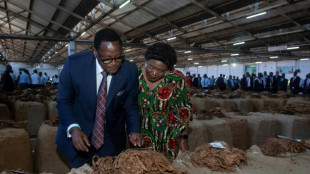
-
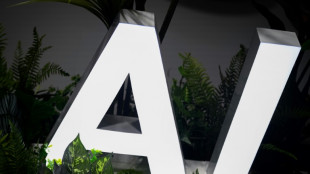 Danish brewer adds AI 'colleagues' to human team
Danish brewer adds AI 'colleagues' to human team
-
USAID cuts rip through African health care systems
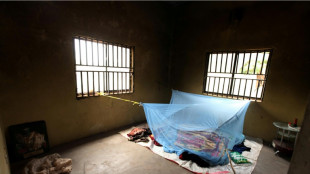
-
 Arsenal target Champions League glory to save season
Arsenal target Champions League glory to save season
-
Kane and Bayern need killer instinct with home final at stake


Trump spotlight divides S.Africa's Afrikaners
Country music and the aroma of pancakes enveloped the "Boeremark", or farmer's market, outside South Africa's capital Pretoria where thousands of Afrikaners browsed on a Saturday morning.
Signs written in Afrikaans advertised traditional foods: braided "koeksister" doughnuts, cinnamon-sprinkled "melkkos" porridge, strips of "biltong" cured meat.
There were stands of books in Afrikaans, a language linked to Dutch, and racks of khaki clothes associated with Afrikaner farmers known as "boere".
The peaceful scene was a far cry from claims of fear and persecution that have reached Washington, leading President Donald Trump to offer refugee status to the white Afrikaner minority in February and thousands to apply.
But, despite the mellow mood, many at the market told AFP they did feel threatened in post-apartheid South Africa.
As "a white person and a boer", she was a victim of "reverse racism", said jewellery vendor Cesere Smith, 54. "There is trouble coming," she told AFP vaguely, welcoming Trump's intervention.
"Every person should be proud of who they are, but here we must feel guilty -- and that’s not right," Smith told AFP.
White Afrikaners are predominantly descendants of Dutch settlers who arrived at the tip of Africa more than three centuries ago. Today they make up most of South Africa's 7.3 percent white population.
Mainly Afrikaner-led governments imposed the race-based apartheid system that denied the black majority political and economic rights until it was voted out in 1994.
Under apartheid, whites benefited from reserved access to jobs, education, land and markets.
The privilege has a legacy. For example, unemployment among white South Africans stands at more than six percent compared to more than 35 percent for the black population.
- 'Phantom pain' -
Prominent journalist and author, Max du Preez, was scathing of complaints of persecution among his fellow Afrikaners.
"Afrikaners are far better off materially and culturally today than in 1994," he told AFP.
Afrikaans culture is thriving, he said, adding that it is the only local language with four television channels and an array of newspapers, magazines and festivals.
The fear of white persecution "is a phantom pain: it's not about what is actually happening, but about what could happen", he said.
"Nothing is coming. The last thing that will happen here is a race war."
Afrikaner "disillusion" grew as the post-apartheid economy struggled with corruption and governance, said professor Christi van der Westhuizen, author of several books on Afrikaner identity.
This made many susceptible to "divisive" narratives pushed by right-wing groups with roots in apartheid, even if "significant sections of Afrikaners remain vehemently opposed" to these ideas, she said.
Such groups have found a sympathetic audience in the United States, where Trump is close to conservative South African-born billionaire Elon Musk.
Their claims that white farmers are targeted for murder -- despite official data that most victims of killings are young black men in urban areas -- have morphed into a myth of a "white genocide", repeated by Trump at the weekend.
Another sore point is an education bill that some believe will limit Afrikaans learning at schools. Also under fire are government attempts to redress apartheid-era discrimination through regulations on business, labour and property ownership.
- Integration -
On a recent Monday, five men -- black and white -- sat around a plate of biltong in a church room in Johannesburg while discussing their mission to bring South Africa's races together.
"This narrative of victimhood makes me sick. The people who were victims here are millions of black people," said Trevor Ntlhola, 57, a pastor and former anti-apartheid activist.
"It takes me back to the 1980s when I preached in white churches against apartheid," said pastor Alexander Venter, 70, his voice breaking.
"The dismantling of apartheid let white people off lightly. A lot of racial conditioning was just buried, and now it’s all resurfacing," he said.
"Trump has given a microphone to radical whites all over the world," added Schalk van Heerden, 47, co-founder of the Betereinders ("Better Enders") movement of Afrikaners which has the slogan "Be better not bitter".
Right-wing groups think Afrikaans culture can only be preserved through self-governance and separation, said Betereinders co-founder Johan Erasmus, ideas that evoke apartheid principles of "separateness".
"Our solution is integration," he said. Many Afrikaners want to be part of "the story of the South African project" of post-apartheid reconciliation.
"People have been betting against us (South Africa) for the last 30 years," he said. But "we are still here."
C.Bruderer--VB
